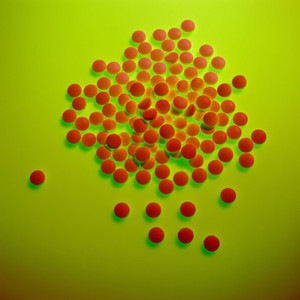The Association of the British Pharmaceutical Industry (ABPI), which represents innovative research-based biopharmaceutical companies in the UK, announced on 12 November 2012 the publication of its position paper on biosimilars.
ABPI issues position paper on biosimilars
Biosimilars/General
|
Posted 23/11/2012
 0
Post your comment
0
Post your comment

ABPI has made seven recommendations in its position paper, which cover areas where the association believes action is needed by regulators, health technology assessment (HTA) agencies, national health service (NHS), NHS commissioners and healthcare professionals who prescribe or dispense biosimilars.
In the UK, the Medicines and Healthcare products Regulatory Agency (MHRA) mandates that all similar biotechnology derived medicines (biosimilars) have a Black Triangle symbol because they are not identical to the originator product and therefore require intensive monitoring for safety and efficacy. The Black Triangle scheme will be superseded in 2013 by an EU level additional monitoring system which will be mandatory for all biological medicines which were approved after 1 January 2011.
MHRA guidance issued in February 2008 reiterates this position and states that physicians should use the brand name when prescribing biological products to ensure that automatic substitution of a biosimilar product does not occur when the medicine is dispensed by the pharmacist. ABPI also states that this is in line with the intention of the EU safety and pharmacovigilance legislation.
EU legislation demands that ‘each biological medicine including biosimilars has a distinct name that clearly distinguishes it from other biological medicines. This is to ensure clear identification, safe prescription and dispensing of medicines to patients, and enable accurate reporting and analysis of adverse event data.’ It should also be noted, however, that the legislation also states that ‘there is no evidence to suggest that biosimilars may need more rigorous pharmacovigilance than originator biological [1].
The seven recommendations made by ABPI in its new position paper cover the following points:
1) All biological/biosimilar prescriptions should be written by brand name and not by international non-proprietary name (INN).
2) A biological or biosimilar must only be substituted with the knowledge and consent of the treating physician.
3) Patients should be kept fully informed about their medication and should be consulted if any changes to their treatment are made.
4) The summary of medicinal product characteristics (SmPC) should clearly indicate the source of information contained within it, such as relevant clinical studies or that it has been derived from evidence about the originator product.
5) Biosimilars should be subject to full HTA processes in the UK.
6) Tenders which are undertaken involving biosimilars should not seek to source a single product only.
7) There should be no automatic indication extrapolation for biosimilars.
The use of biotechnology to develop medicines is rapidly growing and it is estimated that biological medicines are likely to become the biggest selling medicinal products by 2016, with the global market for biosimilars expected to reach US$18 billion by 2017.
Editor’s comment
If you would like to receive a copy* of the ABPI’s position paper on biosimilars, please send us an email.
*For profit organizations subjected to a fee
Related articles
American dermatologists update position statement on biosimilar substitution
Naming and interchangeability of biosimilars raised in new survey
US supreme court ruling means biosimilars pathway safe
Reference
1. GaBI Online - Generics and Biosimilars Initiative. EMA finalises pharmacovigilance guidance [www.gabionline.net]. Mol, Belgium: Pro Pharma Communications International; [cited 2012 Nov 23]. Available from: www.gabionline.net/Guidelines/EMA-finalises-pharmacovigilance-guidance
Permission granted to reproduce for personal and educational use only. All other reproduction, copy or reprinting of all or part of any ‘Content’ found on this website is strictly prohibited without the prior consent of the publisher. Contact the publisher to obtain permission before redistributing.
Source: ABPI
Research
Reaching ESG goals in pharmaceutical development
What is the future for the US biosimilar interchangeability designation
News
EMA recommends approval for teriparatide biosimilar Zandoriah
FDA approves third interchangeable ranibizumab biosimilar Nufymco
Most viewed articles
The best selling biotechnology drugs of 2008: the next biosimilars targets
Global biosimilars guideline development – EGA’s perspective
Related content
Samsung Bioepis wins Pyzchiva case; Regeneron patent rulings threaten foreign biosimilars
Chinese biosimilars go global: growth, partnerships, and challenges
Stelara biosimilars enter US market with 85% discount in 2025
IFPMA publishes position on pharmacy-mediated substitution for biosimilars
Samsung Bioepis wins Pyzchiva case; Regeneron patent rulings threaten foreign biosimilars

Biosimilars/General Posted 30/07/2025
Chinese biosimilars go global: growth, partnerships, and challenges

Biosimilars/General Posted 30/04/2025
IFPMA publishes position on pharmacy-mediated substitution for biosimilars

Biosimilars/General Posted 21/03/2025
The best selling biotechnology drugs of 2008: the next biosimilars targets







Post your comment